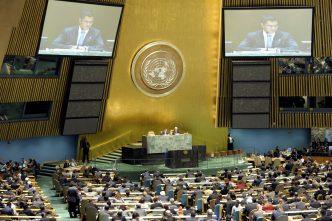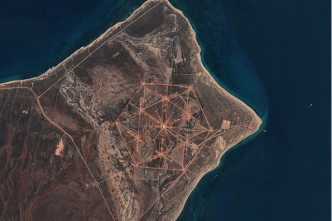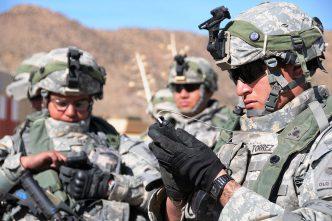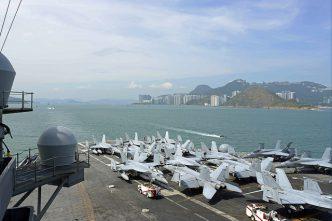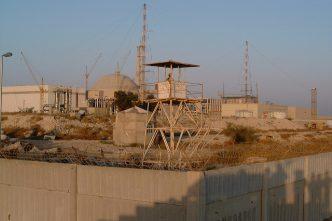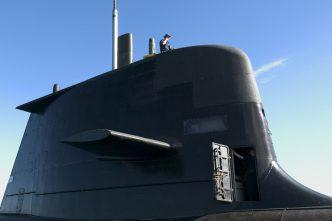The 5 October special meeting of the Council of Australian Governments focused on security and counterterrorism. Premiers and chief ministers agreed to establish the National Facial Biometric Matching Capability and signed the Intergovernmental Agreement on …
Australia is poised to be elected to the United Nations Human Rights Council (HRC) when the General Assembly meets on 16 October. Until recently, Australia, Spain and France were locked in a tight contest for …
This is the year of significant anniversaries marking the Australia–US relationship. In May we commemorated the 75th anniversary of the battle of the Coral Sea and more recently the 50th birthday of the joint facilities, …
The beat Thwarting child abuse Norwegian newspaper Verdens Gang revealed that Queensland Police secretly took over a major child abuse site called Childs Play and administered it for almost a year. The Argos Taskforce monitored …
China has long regarded fresh water as a strategic weapon—one that the country’s leaders have no compunction about wielding to advance their foreign-policy goals. After years of using its chokehold on almost every major transnational …
My previous post on the future submarines talked about having a Plan B in case the project runs into insurmountable problems. In his response, Jon Stanford seconded the need for an insurance policy. So on …
On 13 October, Seoul will host the third Australia – Republic of Korea foreign and defence ministerial (2+2) consultations. While topics to be discussed include cybersecurity, border security and maritime safety, North Korea will dominate the …
With the announcement of the new iPhone X—at a price only a princess royal could afford—I recalled a metaphor that some peers and I tried to employ to describe the importance of integration to future …
For most James Bond devotees, M is the reassuring, somewhat fatherly figure in Ian Fleming’s novels who reluctantly deploys his favourite agent in dangerous, if not deadly, places. Bernard Lee played M wonderfully in the …
For Russia, the great prize is a Europe where it’s accepted on equal terms with other European nations and can share in Europe’s economic and technological progress. A ‘common European home’ was a core element …
This year’s award of the Nobel Peace Prize to the International Campaign to Abolish Nuclear Weapons (ICAN) has stirred mixed reactions. The Norwegian Nobel Committee states that the organisation received the prize ‘for its work …
Sea state This week, the US Navy commissioned its newest nuclear-powered submarine, the USS Washington. The Virginia-class ship is nicknamed ‘Blackfish’ after the local Native American name for the killer whale. At the commissioning ceremony, …
During his 19 September address at the UN, President Trump criticised the Joint Comprehensive Plan of Action (JCPOA) between Iran and the E3/EU+3 (China, France, Germany, the UK, Russia, the US and the EU). US …
I welcomed Andrew Davies’s critique of the Insight Economics report on the future submarine (PDF), of which I was the principal author. Davies substantially agrees with our findings about the major risks associated with the …
Last month, Chinese state media published articles commemorating the 30th anniversary of China’s first-ever email: ‘Across the Great Wall, we can reach every corner in the world.’ The email was sent from a research institute under …
Women, Peace, and Security Act of 2017 The Women, Peace, and Security Act of 2017 has passed both the United States Senate and House of Representatives. President Trump signed the bipartisan legislation into law last …
The humanitarian crisis afflicting Myanmar’s Muslim Rohingya has damaged the country’s political stability and shattered its image as a country moving towards democracy. Moreover, it has tarnished the reputation of the government’s de facto leader, …
Americans do one great favour to sitting presidents—they re-elect ’em. Landing the top job is extraordinarily tough. Doing it is nigh impossible. Getting re-elected is the oft-recurring gift. Dating the modern superpower presidency from Franklin …
The world Sunday’s mass shooting in Las Vegas inevitably spawned an overflow of opinion pieces and analysis profiling the gunman. Was he a terrorist? And what was the rationale behind Islamic State’s unusual claim of …
In his much-acclaimed 1970 book, Why men rebel, Ted R. Gurr postulated that political violence could be explained by looking at social psychological factors. Gurr’s theory about political activism, and specifically political violence, centred on …

